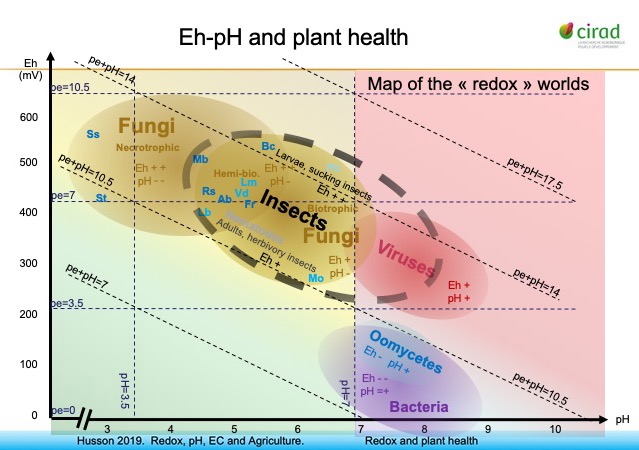Eh, the name for redox potential, is a measurement of the availability of electrons, whereas pH is a measurement of the availability of protons. In order to gain a full picture of the soil’s capacity to supply nutrients, we need to assess both pH and redox potential at the same time. Eh can have as significant an impact on nutrient availability as pH.
This course shares foundational knowledge of agricultural biophysics that sets the stage for the next agricultural revolution.
The information that Olivier discusses is so important and so valuable, it promises to completely reset how we think about soil health and plant nutrition.
Imagine being able to identify the groups of diseases or insects your crops might be susceptible to, well before they are present.
Imagine knowing exactly how to manage nitrogen and nutrition applications to prevent possible infections from occurring.
Both of these and more are possible when we understand redox, and the ways different products and management practices influence soil redox poising and balance.
The future of agronomy will not be based on chemistry but on biophysics and biology, particularly as they relate to redox management.
Olivier has been able to describe the Eh and pH parameters that are needed for pathogenic fungi, bacteria, and viruses to manifest in a plant and cause disease.
You can find an introductory podcast interview with Olivier here, and a foundational paper linked below.
Redox Potential: Eh and pH as Indicators of Soil, Plant, and Animal Health and Quality
This course includes 6 video lessons and takes an estimated 5 hours to complete.
CEUs: 1.50 Nutrient Management
CEUs: 1.50 Soil & Water Management
CEUs: 1.50 Pest Management
CEUs: 1.50 Crop Management
This course is free for KindHarvest Members!


